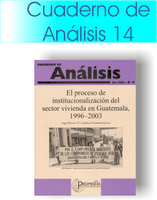IntroductionCapacity Building has become a standard part of many programmes, but have we been learning lessons, and what are they? How do we know if we are increasing our impact and making cities better?
At Istanbul we ran a major series of presentations and discussions named “Capacity Building for Better Cities”. Since then many major institutions have been trying to innovate and also also to take better stock of what has been happening. The networking event will review some of the key obstacles to progress and share useful innovations. Speakers will include Forbes Davidson of IHS, Johnny Astrand of Housing Development and Management, Lund, Caren Levy of DPU and Raf Tuts of UN Habitat’s training and capacity building branch. Banashree Banerjee will moderate and ensure that participants in the event will have a chance to make inputs and help decide on the most strategic way forward.
The session itself will not allow for long presentations. Programmed inputs will be on 5 minutes and interventions from the floor limited initially to 3 minutes. To allow more information to be shared we request that cases referred to be submitted in the following format. The description should be short and to the point, but can refer to other fuller documentation. We request that outlines be sent to
urbancapacity@gmail.comWe are particularly looking for cases that illustrate the importance of working with awareness of the need to achieve the necessary conditions for effective capacity, where individual capacities are supported by a good institutional conditions and a supportive national framework and international framework.
Outline for case studies for Capacity Building for Better Cities: what have we learned?The following headings and annotations should be used as a guide for a short overview both for presentations and written descriptions.
Key data:Name of programme or projectStarting point/ initiativeWho initiated the programme and what was the context.
Date started Date ended (if finished)Scale of project
A brief description of the number of people or institutions worked with.
Description of key features and reason for interestWhat is the programme? What are special features that make it interesting?
At what levels does it operate?We are interested about the way capacity building programmes try to work at the different levels of individual/ institution/ national framework/ International framework (where relevant)
What are seen as the main local challenges to developing effective capacityWhat are the special challenges that have had to be overcome. For example in some countries government salary scales are very low.
Is there any evidence so far of impact? If so, what is it and how was it assessed?Impact assessment is generally a weak area in capacity building. Does the case try to address this? Are there any results?
Is the process introduced sustainable?New initiatives are often introduced through programmes and projects. This increases the risk that the intervention will not be sustainable. What measures have been taken to avoid this and are there any signs of success?
Is it possible to upscale - Locally? Globally?What do you think are the main lessons we can learn which are relevant for making capacity building efforts more effective and or more efficient in future?






